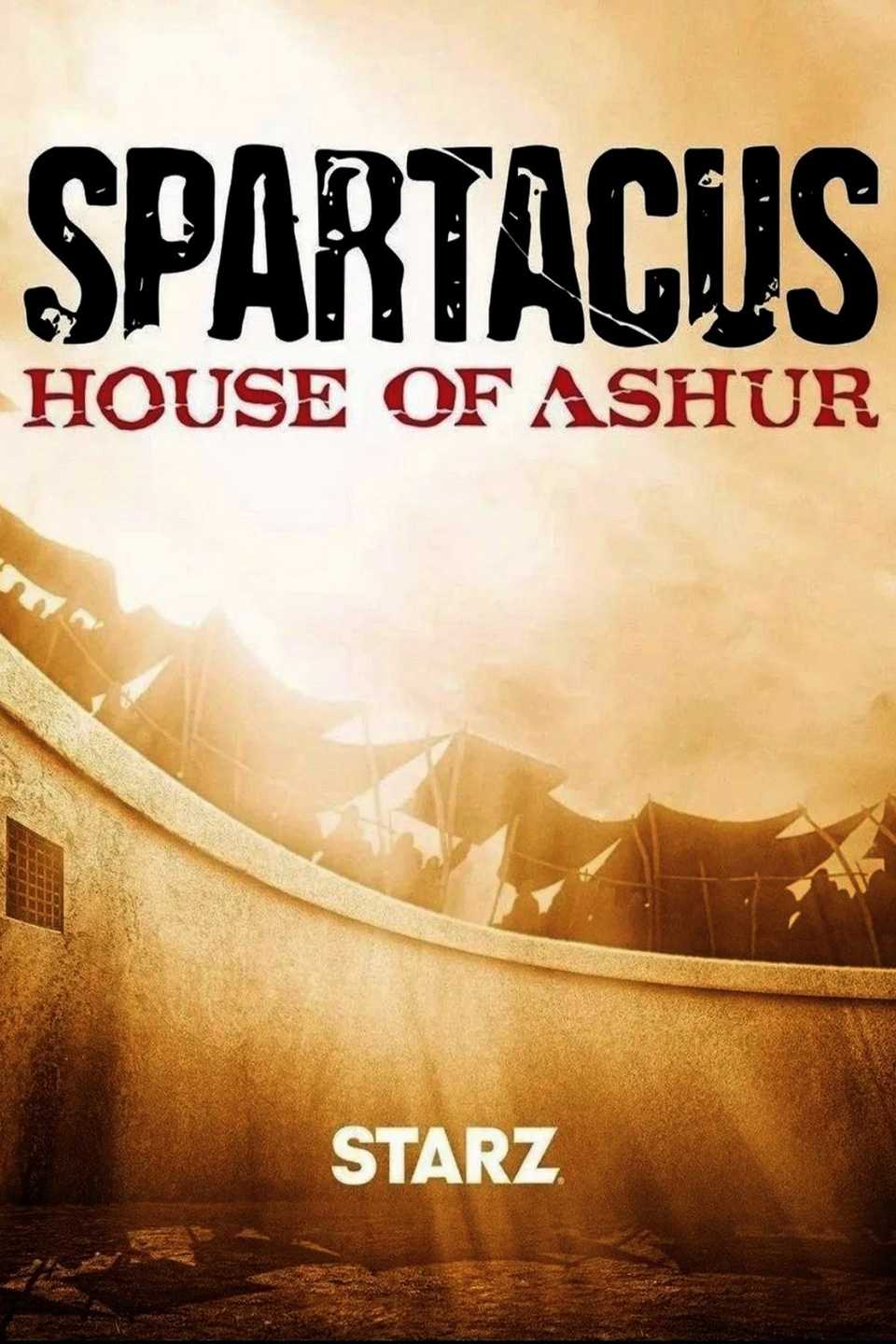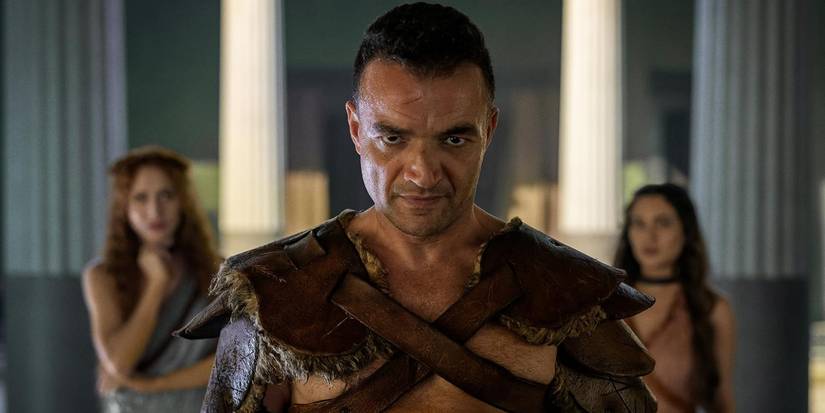For years, Spartacus fans demanded a Julius Caesar spinoff, but that never happened. Thankfully, a different offshoot is premiering soon, and, as Quintus Lentulus Batiatus would poetically say, “Half a glass of lust-triggering wine is better than no glass of wine.” Spartacus: House of Ashur will feature an alternate history where the titular sycophant was not killed on Mount Vesuvius. Instead, he was gifted the ludus formerly owned by Batiatus as appreciation for aiding the Romans in ending the slave rebellion.
Will the sequel be better than the original? Probably not, but it’ll definitely come close. We can also expect it to have plenty of historical inaccuracies, considering that it relies on an alternate version of events. Even though historians might have a problem with this, it isn’t a bad thing, considering that the parent show wasn’t an entirely accurate document either. Spartacus captured the overall story correctly, but it often played fast and loose with Roman history. How?
Here are some of the biggest historical inaccuracies in Spartacus.
Julius Caesar Didn’t Help Quash the Rebellion
Portrayed by Todd Lasance (who has been recast in the sequel due to scheduling issues), a young Julius Caesar aids Roman General Marcus Crassus in defeating Spartacus and his armies. Caesar is actively involved in the Third Sevile War, even going so far as to engage in an undercover mission, pretending to be one of the Thracians’ loyalists. His wit and gallantry help him wound or capture many rebels virtually single-handedly, making him one of the famous and decorated people in the war.
Caesar Was No Spy or Warrior
Showrunner Steven S. DeKnight fitted the legendary Roman ruler so perfectly into the proceedings that fans began clamoring for a solo show. However, there is no evidence that Caesar participated in the Third Seville War. He is reported to have been more active in the Third Mithridatic War, which was fought between Mithridates VI of Pontus and the Roman Republic and lasted from 73 BC to 63 BC, around the same time that Spartacus was causing havoc.
Still, it’s always wise to include Caesar in any show about the Roman Empire, so DeKnight ought to be lauded for bending facts rather than condemned. For casual viewers, the presence of Caesar gives them an idea of the strong qualities the man possessed in his younger days, qualities that allowed him to rise to the top of the empire.
Spartacus Never Had a Personal Feud with Glaber
Roman praetor Gaius Claudius Glaber serves as Spartacus’ archenemy for much of the series. Their feud starts when Gladius orders the protagonist and other Thracian warriors to partake in a mission that they deem pointless. Spartacus rejects the orders and kills Gladius’ men. Consequently, Spartacus’ home is raided, his wife is taken, and the warrior himself is sold into slavery. Later, Glaber is tasked with ending Spartacus’ slave rebellion but is defeated in the Battle of Mount Vesuvius.
Every Great Man Needs an Enemy
Glaber only exists to fill historical gaps and to give the show’s protagonist a proper enemy. There are no historical accounts of a personal feud between him and Spartacus. One of eight elected praetors in 73 BC, Glaber is only ever mentioned by classical historians in connection with his disastrous military campaign against Spartacus. Nothing is known about his personal life.
Though some of Glaber’s scenes are only tangential to the story and could easily have been omitted (shortening the series or creating room for something else), he remains one of the most memorable characters. By creating a feud, the show helps us imagine what Spartacus’ life was like before enslavement, since historical documents also gloss over this time of his life.
Spartacus’ Wife Was Enslaved With Him
Early in the series, Spartacus’ wife, Sura (Erin Cummings), is taken away by Gaius Claudius Glaber, who is far too far removed from everyday existence to know that you can’t mess with a man’s soulmate like that. The Thacian’s memory of his wife gives him strength during his time in the ludus. When he learns that Batiatus betrayed him and never really intended to reunite them, he goes berserk, making him more eager to escape and start a rebellion.
Almost Happily Ever After
The real Sura was never separated from Spartacus. She spent time with him in the house and encouraged him in his plans to escape. However, little is known of what happened to Sura after the rebellion. Some accounts suggest she was killed, while others say she was captured and condemned to more slavery elsewhere.
Well, a decent love story would be boring, and the creative liberties taken on the show are undoubtedly more interesting. Being separated from Sura gives Spartacus the drive he needs to be a great gladiator and future revolt leader. It also amplifies his feud with Glaber. Better yet, it paves the way for another interesting love story, involving the hero and Mira (Katrina Law), an enslaved girl at the House of Batiatus.
Ashur, Ilithyia, Barca, and Lucretia, Tiberius Crassus Weren’t Real Characters
Ashur is an important character in the show, a snake who helps bring down his fellow slaves. Interestingly, he never existed. Neither did Ilithyia, Barca, Lucretia, and Tiberius. Still, all these characters play important roles, aiding the heroes or posing as major obstacles along the way.
A Little Fiction Never Hurts
A major flaw in Roman historical documents is the failure to go deeper when exploring small-time players. Only the bigwigs get thousands of paragraphs. It’s, therefore, difficult to know who the famous people interacted with daily and to what extent. DeKnight and his team were thus right to include fictional characters, as such a choice ensured cohesiveness.
Each of the characters is well written, too. When Ashur sets his sights on power, his chances of winning seem slim to none, yet he goes quite far. Ilithyia and Lucretia are central to the show’s sexual and family roles, demonstrating how women often employed mischief to get ahead in a highly patriarchal society. Barca, on the other hand, makes a key same-sex storyline possible, a necessary move since LGBTQ relationships were common in ancient Rome. Then there is Tiberius, the typical spoilt brat. Marcus Crassus did have two sons, but none were called Tiberius.
Only a Few Gladiators Escaped from the Ludus
In the Season 1 finale, “Kill Them All,” Spartacus and the rest of the gladiators massacre everyone at the ludus before escaping. Doctore tries to stop Spartacus from killing Batiatus, but Crixus persuades him to join the revolt. What once stood as one of the most respected houses in Rome finally falls.
United? Not Really
The main accounts of the Spartacus slave revolt come from three documents: Plutarch, Civil Wars (Book 1), Epitome of Roman History, Livy, and Periochae. All of them agree on a major escape from the gladiator school in Capua, owned by Lentulus Batiatus. However, Plutarch mentions that only 70 to 80 gladiators escaped. The rest remained in the house.
Gladiator schools were often large, with hundreds and even thousands of trainees, so it’s indeed unlikely that all of them would have been convinced to seek freedom. This is in line with all the major prison breaks throughout history, where only a fraction of inmates often manage to escape. On the brighter side, those who fled were so good that they were able to start a major rebellion from the outside. Because of their victories, slaves from all over the land felt compelled to join.
No One Knows How Spartacus Died
Spartacus has one of the most heartbreaking TV deaths, involving the protagonist. In the finale, Spartacus and Crassus agree to fight each other to the death as the larger battle unfolds around them. Spartacus defeats Crassus after an exchange of severe blows, but is mortally wounded by three Roman soldiers who show up behind him and impale him with spears.
A Hero Has Fallen
Plutarch, Florus, and Appian all agree that Spartacus died during the battle, but Appian further reveals that the revolt leader’s body was never found. That’s strange considering that he would have been seen as an ideal trophy for the Romans to parade around as both a sign of victory and a warning to anyone else who thought of pulling a similar stunt. Additionally, the documents reveal that 6,000 survivors captured by Crassus’s legions were crucified and lined up on the Appian Way, stretching from Rome to Capua, a distance of more than 100 miles.
Did Spartacus really die? It remains debatable, but DeKnight needed to kill him off to ensure a greater dramatic effect. And he undoubtedly came up with the best way to kill the character. The image of him kneeling with three spears penetrating his abdomen remains an iconic TV moment.

- Release Date
-
2025
- Network
-
Starz
- Directors
-
Rick Jacobson
This story originally appeared on Movieweb


